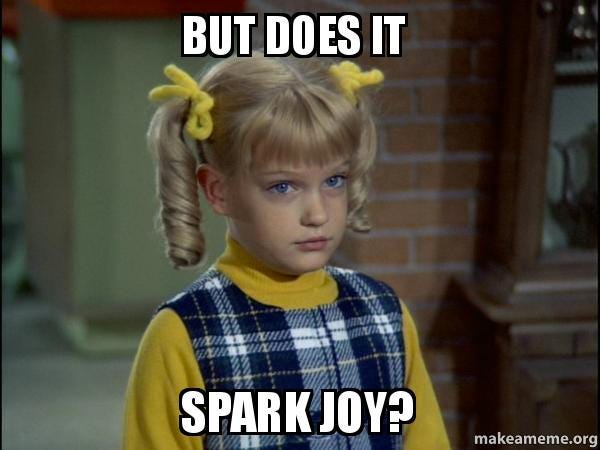LIME Framework: Give Your Mental Health a Tight Squeeze

(Learn-Indulge-Mental clarity-Execute)
Over time I have come up with my own (non scientific) formula which I’ve termed: LIME. These are not distinct habits and in practice overlap and intertwine with each other.
Habit 1: Learn everything.

I needed to learn to recognize feelings, and I didn’t know how to do this initially. This isn’t just ‘catching yourself’ in the behavior that you want to understand, whether it be crying, indulging in a vice, anger, or escapism. It is deeper. It is being able to articulate feelings, and I lacked the language. I lacked the real meaning of words and how those feelings manifested physiologically.
As an example, I know the meaning of the words ‘defensive’, ‘ashamed’, ‘embarrassed’, or ‘annoyed’, ‘grumpy’, ‘nervous’, ‘worried’, or ‘afraid’. But how many of us really understand how they differ? When feeling anxious, I would be hard pressed to say if it was nervousness, worry, or fear. Especially in the moment? When the part of my brain that controls emotions has taken over and is in fight mode? No chance. I would be hard pressed to even define the difference between embarrassed vs ashamed when I am in a calm and collected state. But if I wanted to be able to tackle, and react differently, I needed to be able to recognize a feeling in the moment and identifying something as broadly as ‘anxiety’ wasn’t sufficient.
Beyond words, I needed to reaffirm what was important to me, what my life goals and life values are. I have spent years thinking through these things and continue to do so.
I allocate 2-3 hours a week to actively learn through reading specific books on framing, I’ve worked with therapists to challenge me and my values, and to continuously reevaluate as life progresses. This forms the basis of everything else. It gives me a foundation to describe how I’m feeling in relation to my inner core values and life goals that make me who I am.
Habit 2: Indulge in Happiness (not in vices)
This is the area of life that people either neglect the most in that they think ‘oh, I’ll make time for enjoyment after I get my career going’, or they just take it for granted and don’t realize they are spending time on lots of trivial things that make them happy in the short term like binging yet another tv show, and then lament that they haven’t had time to take that art class they always wanted or that they lack friends or social connection.
I’ve learned to not take this for granted. Indulge in ALL the things that make you IMMENSELY happy. The basic tenet is to simply make sure that you are doing more things that are positive, than negative. And you need to be proactive because hope is not a plan. You NEED to make planning for things that make you happy a priority. NO MATTER WHAT. Carve out specific times for happy things, actively remove things that do not bring joy. Example: Twitter – an utterly useless tool these days. I’ve been off it since 2019 and I don’t miss it one bit. Same with most social media (other than work required). LinkedIn is next on the chopping block.
Half of my clothes – Marie Kondo that shit. Doesn’t spark joy – go donate it or better yet, use it up in an activity that WILL bring happiness. I’ve used a ton of stuff for arts and crafts with my kid. Not enjoying the gym? fuck it. Go play a sport or do an activity that you like instead. Who cares if it is the best or most optimal, etc. I picked up windsurfing simply because I wanted to be in the water. I’m getting back into dragon boating too. And be discerning – if you love milk, but you’re gonna be sore the next day, you may want to indulge in other things that bring happiness! 😀 There is no need to settle for less than the best.
Friends – this can be tricky. I love talking to my friends and I love the advice they give. But in reality it can become a bit of a vice if you don’t keep happiness at the core. Random chit chatting and gossiping can make everyone feel good in the moment and it can become a quick ‘easy fix’ to help you temporarily, but it isn’t always great in the longer run. I had to give up TV and drinking with friends to make time for other social things that truly bring happiness.
The pandemic was super awesome in that it removed all the mindless ‘lets meet at random useless places and just sit staring at each other talking about useless shit repeating the same 3 soundbites’. Instead, I replaced my time with things I did far more of years ago: sports, puzzles and games online, and volunteering (which turns out to be an incredible source of happiness for me). Just like in high school when I had a set routine with friends to meet up to play basketball every Friday night – I made it a schedule. I squeeze every single moment I can with things I enjoy now. Even writing – I do it because I enjoy it and schedule when and how long to do it for rather than hope that I get time for it.
Habit 3: Mental clarity

Having the language to articulate feelings, is only helpful if you can actually pause in the moment when emotions start to rise up. This takes self awareness, self control, and the ability to focus. In today’s lingo: ‘Mindfulness’.
Practicing mindfulness in other areas allowed me to pause in moments when I was sad and to accept the feelings rather than to control them and to ponder on what might be the root. There obviously were many of those moments, but as I found things that were bringing me really low, I was able to slowly create habits, beliefs, and other tools to help me manage those issues. I have always been a creature of habit, and I re-evaluated my morning and evening routines (with refreshers from Atomic Habits) and started meditating daily, active prayer again.
I didn’t know it before, but crying is a tool. It is an opportunity. Mindfulness gave me some tricks to stop and hear what was going on when I felt my physiological self feeling overwhelmed but until I had the language and frameworks I wasn’t able to recognize them to identify new feelings that I don’t think I could even identify before.
But to be able to catch yourself in the moment – you need to train yourself for that. Just like you train for a marathon, you need to train for other situations – situations that give you anxiety, situations that make you sad. Slowly, over time, that specific issue would not be the thing that would get me to break down. Rather than bottling it up, or suppressing it, I actually addressed it in other ways. (to add: post occurrence tactics, during tactics, pre-emptive tactics).
Habit 4: Execute, no excuses

The first three parts of this framework gave tools, and now this is just about finally just starting to do all the things. You know you’re supposed to exercise daily. Just do it. Stop making excuses. Don’t worry about it is the most perfect exercise. Don’t worry if you ran at a pace slower than a snail or if you can only lift 5lbs or if your exercise is really just going to a batting cage for an hour. Just start doing it (or whatever other exercise that you enjoy).
At a certain point, your lizard brain is just getting in the way looking for every reason to not do something. Waiting for your performance review before you start practicing mindfulness, or waiting until you lose 2 more pounds before reducing eating chocolates everyday, or waiting until you find the perfect coach before starting with a career coach. The only constant is change and the one of the few things you can somewhat control is the pace. You need to increase the pace of change sometimes and often it means to do that with imperfect data. It’s a bit like the Karate Kid with wax on, wax off. Don’t waste your time trying to understand why it might work – unless you have a better idea and Johnny Lawrence is setting up a dojo for you, just start with the damn wax on, wax off. Control the pace and when you look back after some time, you’ll be making progress.
I like to think that as I practiced these steps more and more, I have become better at understanding what it is that gets me sad, or makes want to cry and has helped me to manage depressive states. I’m not trying to trivialize anyone else’s difficulties or depression – this is just something that works for me and it has taken me years to figure out.

Nice…